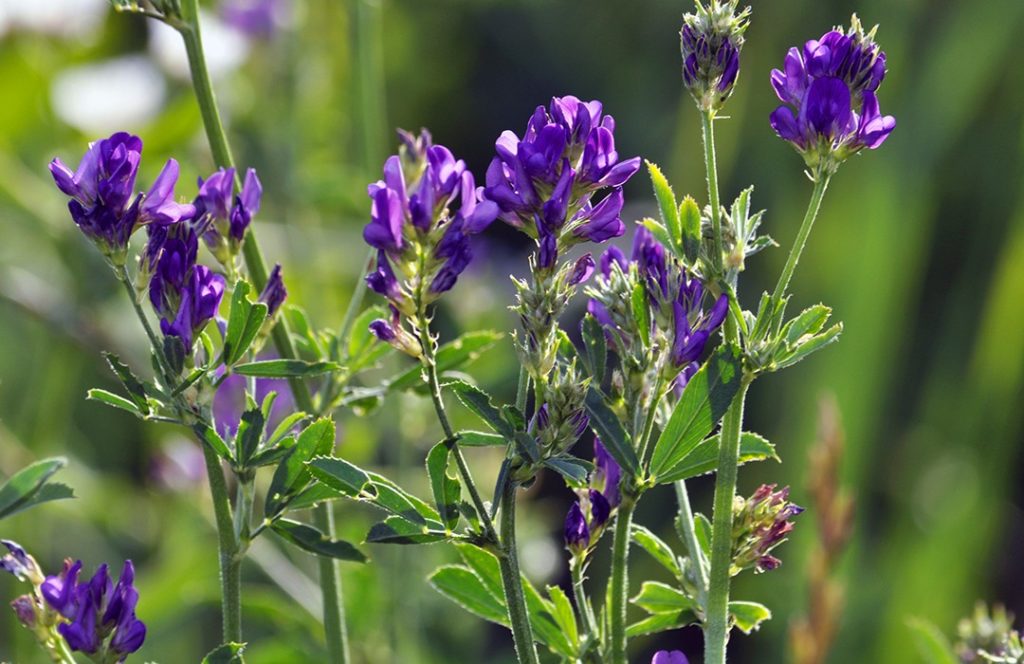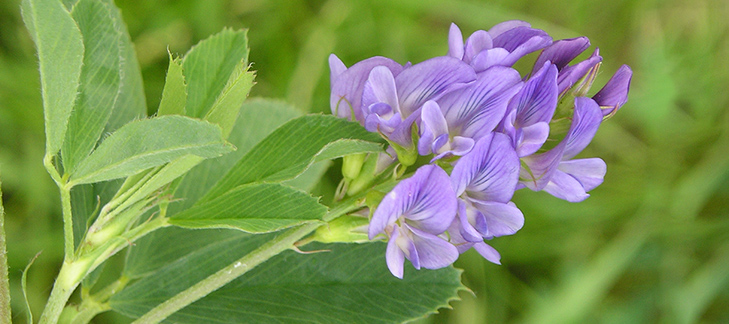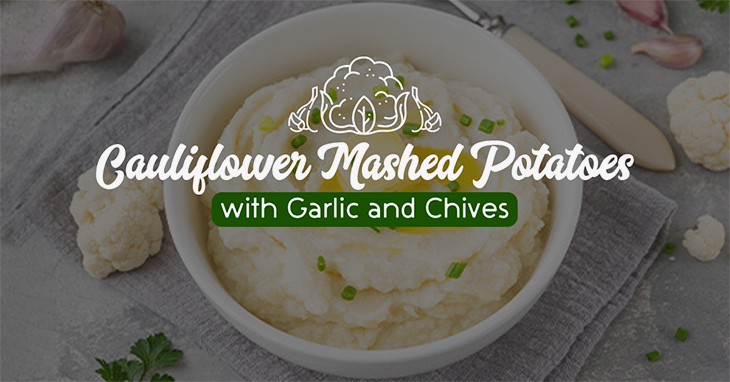Is Alfalfa good for you?
Category: Healthy Nutrition

Alfalfa (Medicago sativa), also known as lucerne, is a flowering, perennial legume that favours warmer climates. Most of the plant, including the seeds, leaves, and sprouts, is used nutritionally and medicinally.
The roots of the alfalfa plant burrow deep in the soil to reach minerals inaccessible to other plants. It searches out nutrients and minerals from the soil’s deposits, while its leaves contain abundant chlorophyll, an essential component of photosynthesis.
Alfalfa is known as both “king of the herbs” and “the father of all foods” because of its high nutrient content, which includes:
– Potassium
– Phosphorus
– Biotin
– Folic acid
– Iron
– Calcium
– Vitamins A, C, E, K, and all the B vitamins
– Protein

Dr. Shaklee, in his book A Study Course In Nutrition, talks about alfalfa:
“The nutritional values in alfalfa, as in all other fruits and vegetables, depend upon the richness of the soil in which it is grown. It also depends upon the treatment it has received since it was harvested, as many of the foods on your table contain less than one-tenth of their original
nutritional values.
Alfalfa contains about five times as much protein as milk. It is higher in protein values than meat, eggs, or whole grains. It is five to 20 times higher in calcium, and many times higher in iron. It is exceptionally rich in vitamin A, being nearly equal to that found in liver. It contains a good supply of B vitamins and vitamin E.
However, the vitamin for which it is most noted is vitamin K. It contains from 250 to 400 units of vitamin K per gram.”
Benefits of Taking Alfalfa Supplements
Alfalfa’s cholesterol-lowering ability is its best-studied health benefit to date.
One study of 15 people found that, on average, consuming 40 grams of alfalfa seeds three times daily decreased total cholesterol by 17% and “bad” LDL cholesterol by 18% after eight weeks.
This effect is attributed to its high content of saponins, which are plant compounds known to lower cholesterol levels.
There is also a long list of traditional uses of alfalfa as a medicinal herb. This includes lowering blood pressure, acting as a diuretic, increasing breast milk production, treating arthritis, and dissolving kidney stones.
Can Alfalfa Supplements Be Bad for You?
Alfalfa seeds and sprouts do contain an amino acid called L-canavanine, which has been linked to autoimmune disorders. There’s also evidence that they have estrogenic effects, which is why patients with estrogen-sensitive cancers are advised to avoid alfalfa supplementation.
However, Shaklee’s Alfalfa Complex is manufactured using only the leaves and stems, which are safe, as explained by Shaklee scientists in a study published in The American Journal of Clinical Nutrition.
This is an excellent example of why it’s essential to not only look at the ingredients on the label
But also do some research on how the products are manufactured and the science behind
their development.
As should be the norm when taking dietary supplements, it is essential to consult your healthcare provider first to ensure they’re safe and effective.
Here’s to your health!
Gaetane
www.gaetaneferland.com



Facebook Comments